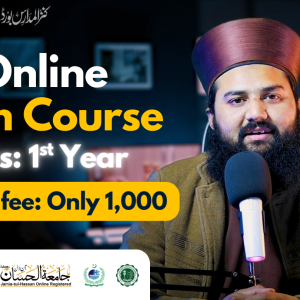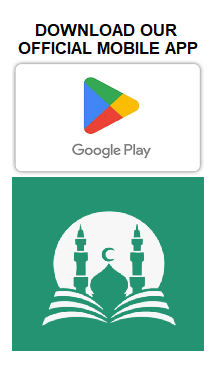Essential Tips to Learn Quranic Arabic Online Free

📚 Explore Our Latest Islamic Courses 📚
Moreover, Quranic Arabic is not only about reading and comprehension but also about experiencing the oral and aural beauty of the Quranic recitation. The phonetic aspects of the language play a crucial role in conveying the intended meanings and emotional undertones, making it essential for learners to focus on both the written and spoken aspects of the language.
📚 Explore Our Latest Islamic Courses 📚
Why Learn Quranic Arabic?
The primary benefit of learning Quranic Arabic is the ability to understand the Quran as it was revealed. Translations can sometimes miss subtle meanings or the beauty of the original text. By learning the language, you gain a deeper connection and insight into Islamic teachings and spirituality. This understanding fosters a more intimate and personal relationship with the text, enabling a more profound reflection on its teachings and guidance.
📚 Explore Our Latest Islamic Courses 📚
Additionally, learning Quranic Arabic opens the door to understanding other classical Islamic texts, which are often written in the same language style. It can also enhance your participation in religious practices and community activities, such as prayers and discussions, where Quranic verses are frequently referenced and recited. Thus, gaining proficiency in Quranic Arabic not only benefits your personal spiritual growth but also enriches your communal and cultural experiences.
📚 Explore Our Latest Islamic Courses 📚
Tips for Learning Quranic Arabic
Start with the Basics
Before diving into Quranic Arabic, it’s helpful to have a basic understanding of Arabic script and pronunciation. Familiarize yourself with the Arabic alphabet and practice reading simple words. This foundation will make it easier to tackle more complex texts later on. Start by learning the distinct shapes and sounds of each letter, and practice writing them to reinforce your recognition skills.
📚 Explore Our Latest Islamic Courses 📚
Developing a solid grasp of pronunciation is equally important, as Quranic Arabic relies heavily on the correct articulation of sounds. Utilize audio resources and tools to mimic the sounds accurately, ensuring that your foundation is strong. This early investment in mastering the basics will pay off significantly as you progress to more advanced levels.
📚 Explore Our Latest Islamic Courses 📚
Utilize Online Resources
There are numerous online resources available for learning Quranic Arabic, many of which are free. Websites offer courses, tutorials, and practice exercises tailored to different skill levels. Some popular options include:
📚 Explore Our Latest Islamic Courses 📚
- Bayyinah TV: Offers a comprehensive online Quranic Arabic course.
- Quranic: A mobile app designed to help users learn Quranic vocabulary.
- Madinah Arabic: Provides free lessons on Quranic Arabic grammar and vocabulary.
In addition to these resources, many platforms offer interactive learning tools, such as quizzes and flashcards, to enhance your vocabulary retention and understanding. Engaging with diverse formats, such as videos and podcasts, can also provide a more rounded learning experience. These resources often come with community forums, allowing you to connect with fellow learners for support and motivation.
📚 Explore Our Latest Islamic Courses 📚
Enroll in Quranic Arabic Classes

📚 Explore Our Latest Islamic Courses 📚
- Grammar Lessons: Essential for understanding sentence structure and meaning.
- Vocabulary Building: Focused on common words and phrases found in the Quran.
- Reading Practice: Helps develop fluency and comprehension skills.
In addition to the structured curriculum, these classes often offer the benefit of personalized feedback from instructors, which can be invaluable in correcting mistakes and reinforcing learning. Engaging with a classroom environment, whether online or in-person, also fosters a sense of community and accountability, encouraging regular practice and progression.
📚 Explore Our Latest Islamic Courses 📚
Practice Regularly
Consistency is key when learning any new language. Set aside time each day for study and practice. This could involve reading Quranic passages, reviewing vocabulary, or completing exercises. Regular practice helps reinforce what you’ve learned and improves retention. Consider setting specific goals for each study session, such as mastering a set number of new words or reading a particular surah.
📚 Explore Our Latest Islamic Courses 📚
Incorporate Quranic Arabic into your daily routine by integrating it into your prayers or daily reflections. This not only serves as a practical application of your learning but also deepens your spiritual connection. Experiment with different learning schedules to find what works best for you, and adjust as needed to maintain a steady pace of progress.
📚 Explore Our Latest Islamic Courses 📚
Engage with Native Speakers
Interacting with native Arabic speakers can enhance your learning experience. They can provide insights into pronunciation, cultural context, and common phrases. Consider joining online forums or local groups where you can practice speaking and listening. Engaging in conversations, even if at a basic level, can significantly boost your confidence and reinforce your learning.
📚 Explore Our Latest Islamic Courses 📚
Participating in cultural events or religious gatherings where Quranic Arabic is used can also provide valuable immersion experiences. These interactions not only improve your language skills but also offer a richer understanding of the cultural and spiritual dimensions of the language.
Focus on Quranic Arabic Grammar
Understanding grammar is crucial for interpreting Quranic texts. Pay attention to key grammatical concepts such as verb conjugations, noun cases, and sentence structure. Many online courses offer grammar-focused modules to help you master these elements. Focus on understanding the rules and patterns that govern the language, as this will enable you to interpret texts more accurately.
Use practical exercises to apply grammatical concepts in context, reinforcing your understanding through practice. Approach grammar as a tool for unlocking the deeper meanings of the Quranic text, rather than a set of rules to memorize. This mindset will help you appreciate the elegance and precision of Quranic Arabic.
Overcoming Challenges in Learning Quranic Arabic
Managing Expectations
Learning Quranic Arabic is a gradual process that requires patience and perseverance. Set realistic goals and celebrate small achievements along the way. Remember that progress might be slow initially, but consistency and dedication will lead to improvement over time. Acknowledge that challenges and plateaus are a natural part of the learning process, and view them as opportunities for growth rather than setbacks.
Maintain motivation by reflecting on your reasons for learning Quranic Arabic and the benefits it brings to your spiritual and personal life. Surround yourself with supportive communities and mentors who can provide encouragement and guidance. By keeping your expectations in check, you can enjoy the journey without becoming overwhelmed.
Finding Quality Resources
With the abundance of online materials, it can be challenging to identify reputable resources. Look for courses and tutorials from established institutions or educators with positive reviews. Check for content that aligns with your learning style and goals. Prioritize resources that offer structured learning paths and comprehensive coverage of the language’s essential aspects.
Don’t hesitate to experiment with different resources until you find those that best suit your needs. Seek recommendations from fellow learners or educators, and be open to adapting your resource choices as you progress. Quality resources not only facilitate effective learning but also keep you engaged and motivated.
Balancing Study with Daily Life

Balancing your studies with other commitments can be difficult. Create a study schedule that fits your routine and allows for flexibility. Use apps or tools to manage your time effectively and avoid burnout by taking regular breaks. Consider integrating Quranic Arabic learning into your daily activities, such as listening to lessons during commutes or reviewing vocabulary during breaks.
Be mindful of maintaining a healthy balance between your studies and personal life to ensure sustained progress. Communicate your goals and schedule with family or roommates to gain their support and understanding. By managing your time wisely, you can maintain a consistent learning pace without sacrificing other important aspects of your life.
Conclusion
Learning Quranic Arabic is a fulfilling endeavor that deepens your connection with the Quran and enriches your spiritual journey. By starting with the basics, utilizing available resources, and practicing regularly, you can steadily improve your proficiency. Remember to approach the learning process with patience and determination, and you’ll find joy and reward in understanding the Quran’s timeless words.
Whether you’re taking online courses, attending classes, or self-studying, the key is to remain committed to your learning path. As you gain confidence in reading and interpreting Quranic Arabic, you’ll unlock new levels of appreciation and insight into Islamic teachings. This journey not only enhances your personal faith but also equips you with the tools to contribute meaningfully to your community and engage with Islamic scholarship at a deeper level.







